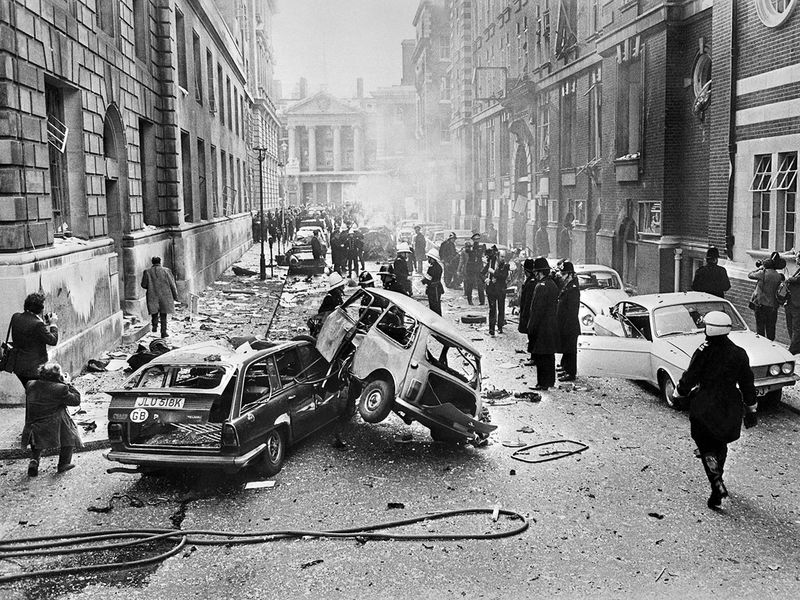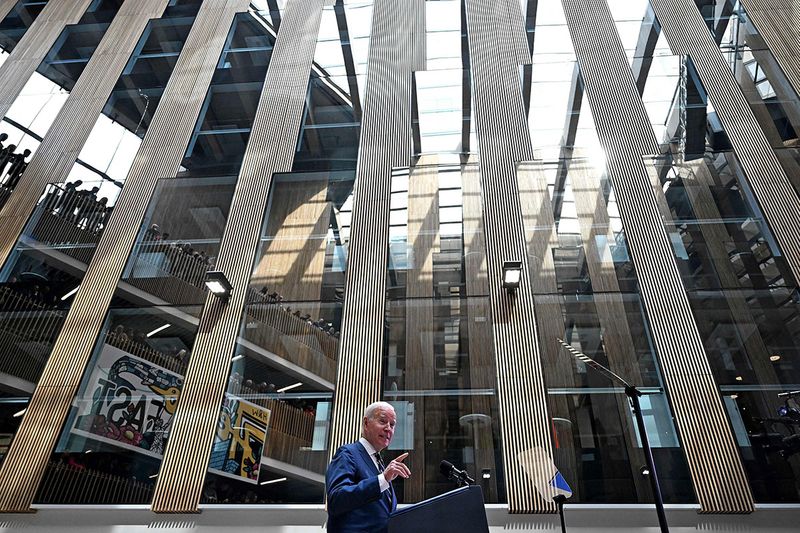On Good Friday morning last week, I sat in the communal waiting area of Terminal 3 at Manchester Airport — it is the worst in the UK in my opinion — and listened to the heavily accented lilt of a grandfather from Belfast as he travelled somewhere or another with his two sons and their three young boys.
The banter was light hearted, but the grandfather and sons were old enough to remember the bad old days when anyone with a Northern Irish accent was treated with a healthy dose of suspicion anywhere on the British ‘mainland’.
“Were you searched?” the grandfather teased one young boy of about eight years of age.
I chucked to myself. Back then, as three decades of “The Troubles” in Northern Ireland were entering their final chapter, some 3,600 people had died and another 36,000 have been injured in a long-running terrorist campaign to reunite the British province with the rest of the Republic of Ireland.

And that the intergenerational conversation and jest took place on Good Friday was all the more poignant. Thankfully, as a result of the Good Friday Agreement signed 25 years ago now, those three young boys have never known what it is like to be searched at military checkpoints or in streets as you entered any city or town centre in Northern Ireland.
They will never have known the sound of boots kicking in a hall door as a squad of British soldiers tear a house apart looking for suspects, information or anything that might be considered terrorist materials.
They will never have known the sickening crumple and thud of buildings falling into the street as a result of a car bombing, nor the thumping clatter of army helicopters flying overhead day and night, the service personnel aboard being far safer than moving though “no go” areas or parts of the countryside considered to be “bandit country”.
Hopefully, these young boys will know what it is like to mix in a school with boys of a different religion. They might even play chess, across a board with someone from a family of differing political opinions.
If they have visited Belfast before, they’ll have seen the “peace lines” that still exist. These are 30-metre high barriers erected by the British Army in the late 1960s in an attempt to keep Catholics and Protestants, Nationalists and Unionists apart.
Five decades on, these peace lines still exist, a reminder that while the Good Friday Agreement ended the violence and hostilities, there is still a long way to go in this peace process. It is a process and requires work.
In communities across the province, you know where you stand as you survey any street.

Nurturing a peace process
Paving stones by the roadside are either painted the red, white and blue colours of the British Union Jack flag, or the green, white and orange colours of the tricolor of the Republic of Ireland.
Lamp posts also carry the same tribal markings. As beautiful as the murals painted on buildings might appear to the casual observer or tourist, they are the marking of territory and the statement of long-held and deep-root political and religious opinions, a constant reminder that these are streets where violence occurred and might indeed return one day unless that peace process is nurtured and embraced.
Walk into any pub and the selection of liquors on sale serve as a reminder. Scotch or Irish whiskies in bottles say a lot, so too the distinctly different newspapers read by the customers sipping on beers.
On some buildings, there are Palestinian flags, a reminder that the Irish nationalists associate with a downtrodden people fighting for their homeland; an odd Israeli flag in Loyalist areas, a reminder that unionists see themselves as the opposite.
A quarter of a century has passed since gunmen on both sides agreed to lay down their weapons and have then destroyed in a decommissioning process. Bullets and revolvers from South Africa or Eastern Europe on the Loyalist side, AK47s from Libya and bullets bought with donations from Irish bars in Boston and the Bronx.
Importance of peace
On Wednesday in Belfast, US President Joe Biden spoke at Ulster University to reiterate the importance of building a peace together, paying tribute “the pioneering women who said ‘enough’ and demanded change”, political leaders and the “determined efforts” of his “good friend” Senator George Mitchell to bring about the Good Friday Agreement.
“His time serving as special envoy for Northern Ireland is one of the great examples in history of the right person for the right job at the right time in my view,” the president said of Mitchell.
“I think sometimes, especially with the distance of history, we forget how hard-earned, how astounding that peace was. It shifted the political gravity in our world.”
It did. But this is also a time of gravity, and our world is changing.
The power-sharing government that was set up has, over these past years, not been able to function.
The generation that built the peace has passed, and those that have inherited its institutions seem less aware of its critical value — and that is a pity.
As a young reporter, I spent too many days and nights writing on the horrific events that unfolded in alleys and streets, ditches and villages. I wrote too many words about violence.
Too many families shed too many tears. For peace’s sake, this process needs to work. A coward can easily pull a trigger, a hero is brave enough to sit and make peace. It’s time we had more heroes.








